Originally published at: TriQuest. Triathlon Goes Gravel. - Slowtwitch News
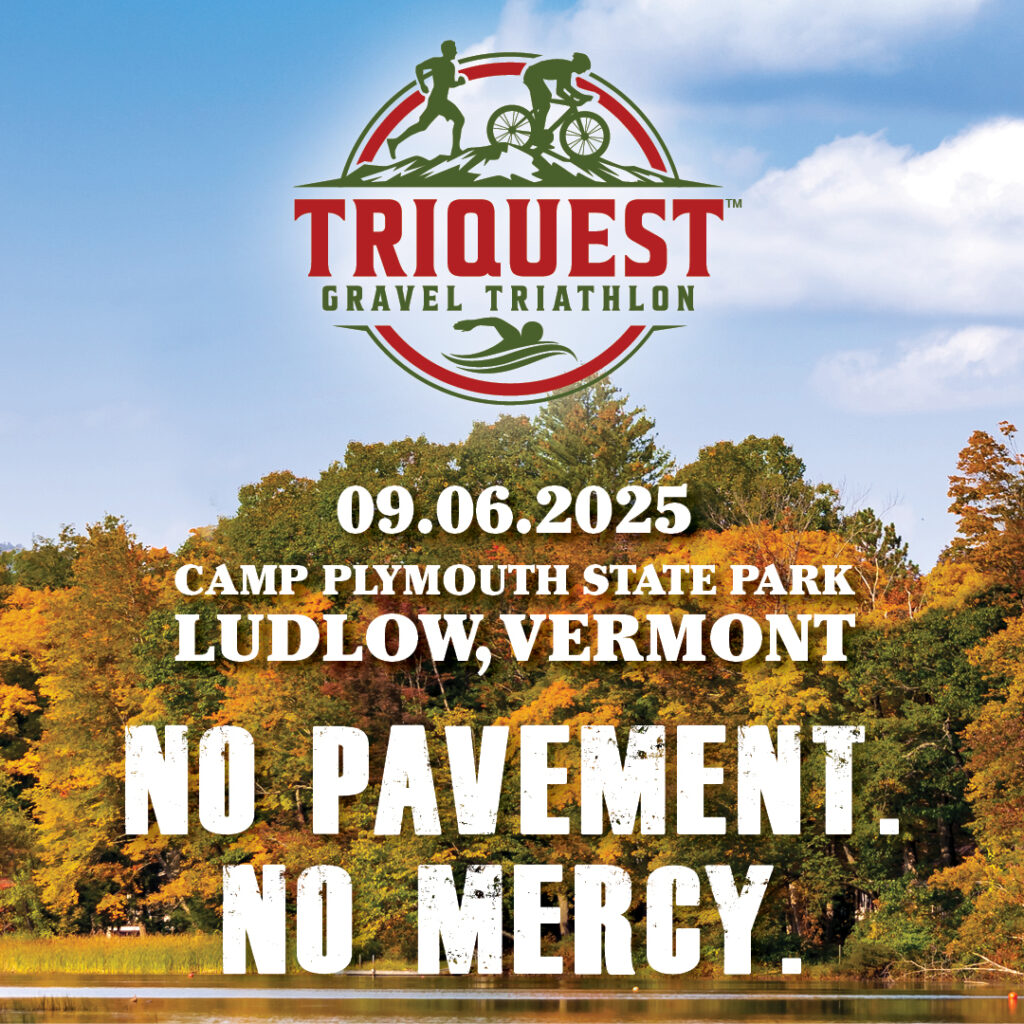
When gravel really took off in the mid-2010s, triathletes were among the first to jump on board. Just as Slowtwitch’s forums had always had a particular interest in time-trial tech, gravel and gravel tech became an equally hot topic. In some ways, it was logical. Gravel was very much like triathlon was in its infancy, with a lot of wild ideas about bike tech, though with rolling resistance taking a slight edge over aerodynamics in terms of interest. I suppose that, at least in part, that’s because the aero debate has been largely solved, and rolling resistance is the current area of innovation on the road as well. More aero is always more better; with rolling resistance, while it was clear that wider tires and lower pressures were better to a point, exactly what point was still up for debate, something that becomes even more murky on different surfaces. Given the enthusiasm about gravel bikes, gravel tech, and gravel riding, I fully expected that gravel triathlons would soon follow. Especially given that road closures are among the most challenging and most costly parts of race logistics, gravel seemed to offer a boon to race directors as well as to the athletes themselves.
But if the market is always (or mostly) right, then it also seemed clear that the demand was not there. Triathletes continued to be interested in everything about gravel except for combining it with swimming and running. Yes, triathlon already has an offroad genre. But while XTerra has remained alive and well for 30+ years, it has never really grown beyond being a niche within a niche. I suspect that the technical nature of many XTerra courses has always been a deterrent to people who don’t want to (or can’t) ride a MTB often enough to be proficient; the criticism I’ve often heard levied against XTerra is that you don’t need a MTB for most of the course on most of the courses, but when you do need a MTB, you really need one. Gravel largely solves this. While more time on a gravel bike will certainly make you a more competent gravel rider, you certainly can ride gravel based off of little more than your time (and fitness) on a road or tri bike.
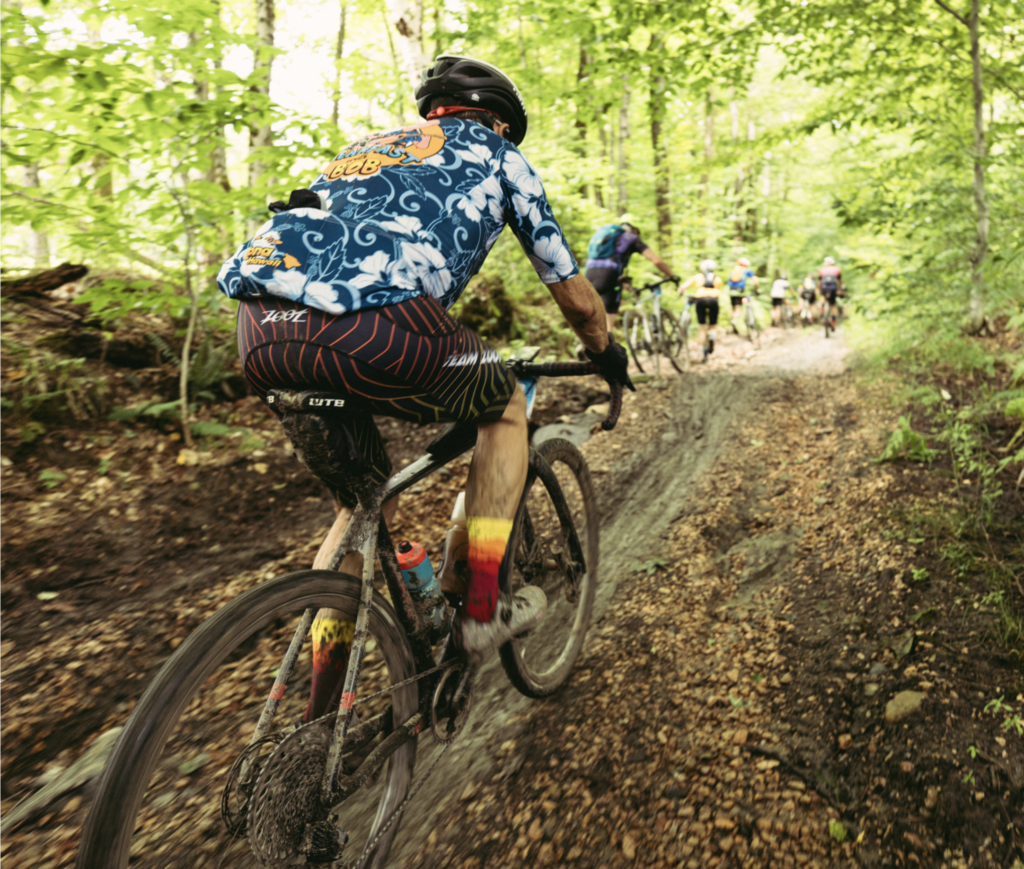
COVID certainly derailed a lot of plans in 2020, but even before that I saw little evidence that gravel triathlon was imminent. When triathlon and gravel racing returned post-lockdown, I kept waiting to see a new crop of gravel triathlon races that never appeared. Following his retirement, Jan Frodeno kicked off the first serious gravel triathlons in Europe with SGRAIL (Swim GRavel trAIL). And while SGRAIL is coming to the US (Big Bear, CA) this year, I expected it to be a bigger deal following its 2021 launch than it has seemed – so far – to be. Four years on, there remain only the two SGRAIL races in Europe, even as 70.3 races have continued to blossom and gravel racing has become increasingly organized and professional. This may be a case where everyone is waiting for someone else to take the first step, resulting in a chicken-and-egg scenario where no one does gravel triathlons because there aren’t any. But there aren’t any because no one does them.
The Inaugural Race – Sept. 26 – Ludlow, VT
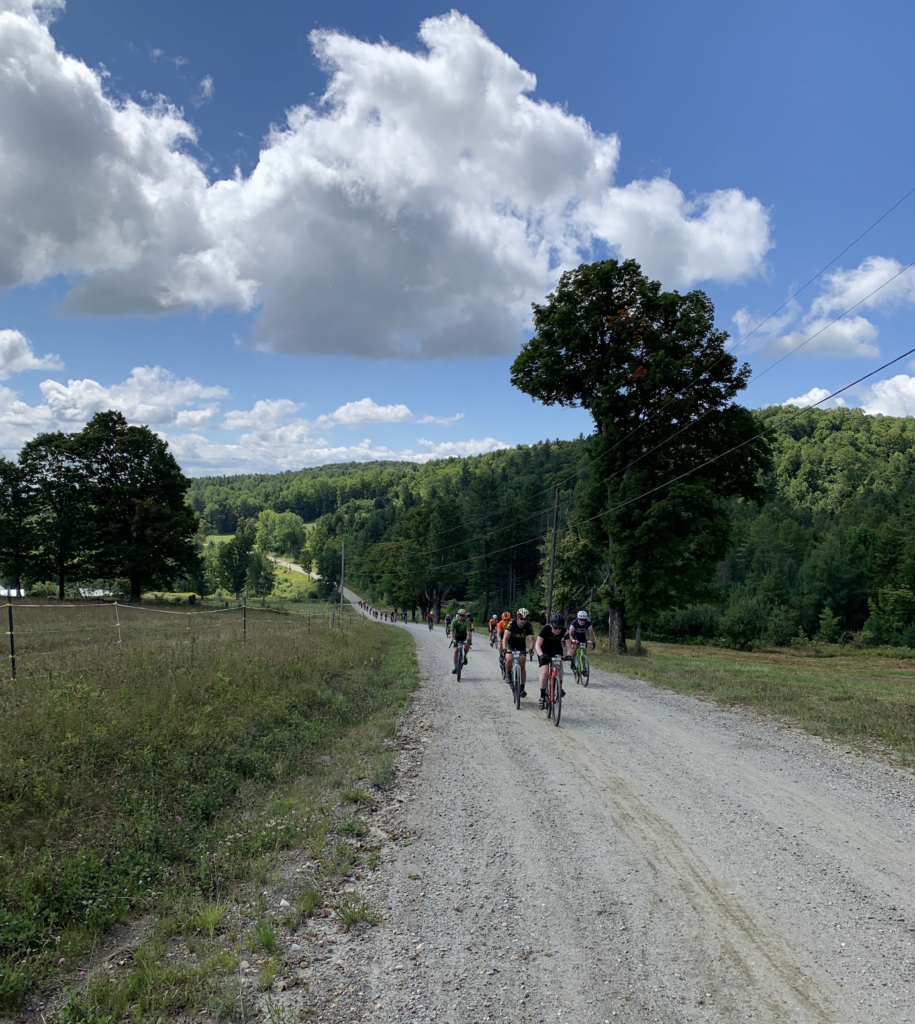
This is, essentially, the genesis of TriQuest, founded by longtime Slowtwitch forum member Scott Dinhofer. Dinhofer thought someone should put on a gravel race in the Vermont lakes region where he spends a lot of time. Vermont has a bunch of great gravel races – Vermont Overland being the biggest, but Rasputista also comes to mind as one of those destination races that draws people from across the US. After trying to get a race director friend to put on the race he thought should happen, he ended up stepping into the RD role himself. The first of what he hopes will become a series of gravel triathlons takes place this fall in Ludlow, Vermont – home of the Okemo ski area – on September 6th. The race consists of a 1 mile swim; 28 mile gravel bike ride largely taking place on Vermont’s class 4 roads; and an 8 mile trail run. All course maps available at https://www.triquest.co/Race/TriquestVT/Page/CourseMaps
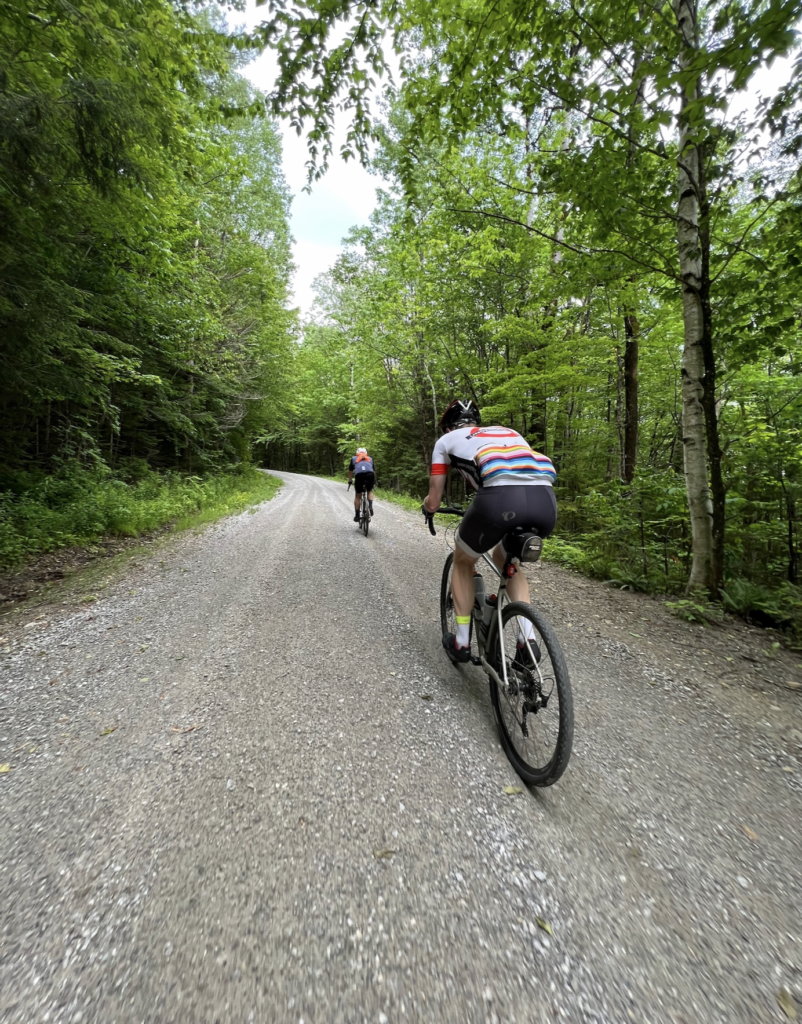
It’s hard to imagine a more idyllic setting for a race. And because gravel riding is really the best riding in Vermont because of the vast network of roads-that-are-not-really-roads, there isn’t really much competition in the form of traditional road triathlons. If gravel triathlon is gonna be a thing, I suspect it will be because of venues like this one – places where stunning scenery combines with an inability to put on any other sort of race, and voila. Vermont, in particular, seems well suited to this because it has an excess of lakes and a dearth, relatively, of paved roads. The site PureVermontGravel.com is a great resource for people who are interested in riding any (or all) of Vermont’s thousands of miles of dirt roads.
The swim is a single loop in Echo Lake. The bike is a single big loop with some pavement but mostly dirt “roads.” And the run is an uphill-downhill out-and-back that offers some spectacular views of the Coolidge State Forest and the surrounding mountains at the midway turnaround point. Dinhofer would like to set up the race as a point-to-point with a summit finish for next year, but the additional logistics that necessitated was a bit much for the first edition.
The Future – Expanding Nationally
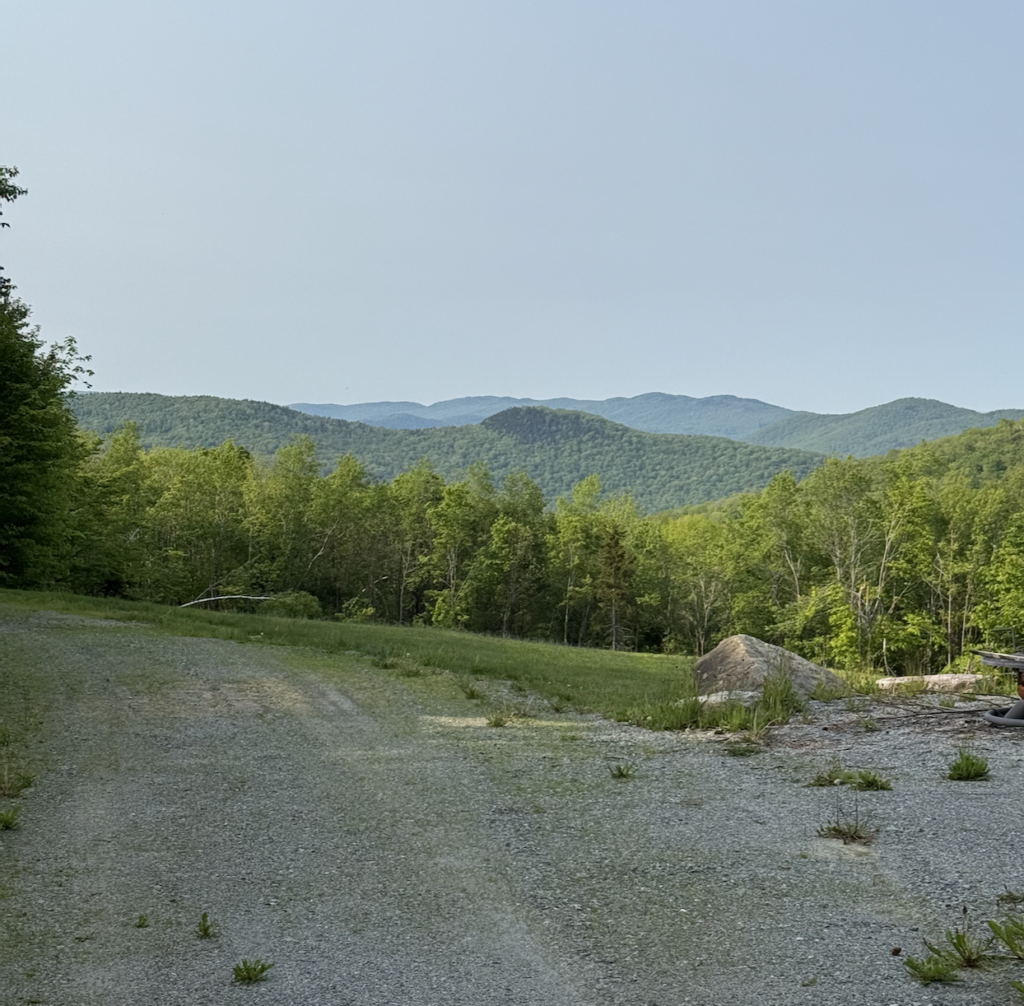
Dinhofer already is planning ahead for future iterations of the Ludlow race and also for expansion nationally. Dinhofer is a long time IRONMAN racer and is preparing for what he claims will be his last go at the distance in Cozumel this year, hoping to qualify for Nice and to bow out at the bottom of the 60-64 age-group. TriQuest is a passion project, and seems to me to be rooted both in a belief in the old adage, “If you build it, they will come” as well as in an inability to actually be the kind of person who really “retires,” either professionally or athletically. Making TriQuest succeed is just another challenge for someone who, in typical triathlete fashion, can’t get enough of them. I’ve known Scott a long time – we’re from the same area of New York, and I’ll admit to wanting to see this endeavor succeed both because I think that gravel triathlon is something the sport needs and because it’s a friend of mine who is trying to make that happen.
As you might expect, before the first race has even been run, Dinhofer is already planning not only next year’s race in Vermont, but talking about races in locations as varied as Utah; Bentonville, AR; and the Pacific Northwest. If anyone is interested in race directing, let him know! While he’s managed to get some support from Zoot, Ventum, and local business The Boot Pro Ski & Bike, this race will succeed (or not) based on the support of the community.
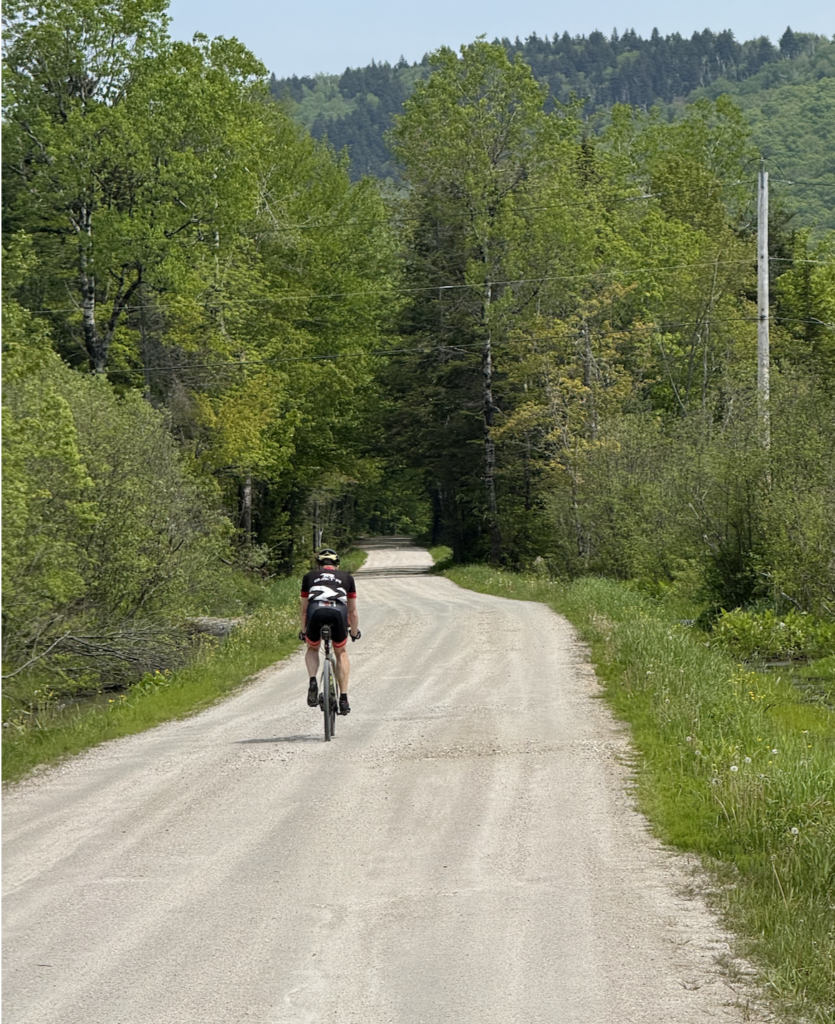
Dinhofer talks about creating a more “athlete-focused” brand and experience than the typical IRONMAN, but I think this largely misses the point. IRONMAN delivers a first-rate experience to a ton of athletes every year. The point of gravel – and of gravel triathlon – is not to compete with IRONMAN but rather to be a fundamentally distinct experience. While time is most certainly finite and, as a result, every race is in competition with every other race that might command someone’s time, attention, and travel dollars, the point of something like TriQuest is necessarily different from something like IRONMAN.
I believe this is part of why many local races struggle. Because it’s hard to compete with IRONMAN in their niche, which is mass start races with bike and run portions on paved roads. By offering a race that is, at its core, an entirely unique proposition – while being close enough in training (unlike XTerra) to be familiar, an event like TriQuest can fill a spot that simply doesn’t exist in the sport right now.
There’s nothing like the finish line of an IRONMAN. But, at least for now, there’s nothing like the finish line of a TriQuest race either. I think there’s plenty of space for both.
For more information or to register for the race, visit https://www.triquest.co/
Jordan Rapp was a professional triathlete for over 12 years and is the 2011 ITU Long Distance World Champion and a 6-time IRONMAN winner. He served as CTO of Slowtwitch.com from 2007 until 2024.